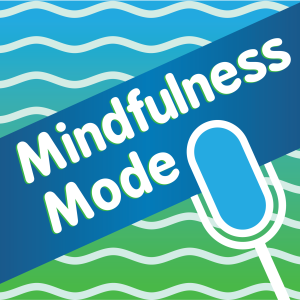
Jaimal Yogis is an author and teacher of creative writing. He is widely known for his best-seller, Saltwater Buddha, a masterpiece novel and documentary film which tells the story of a young surfer’s spiritual journey as he experiences monasteries, meditation and mindfulness as part of his fascinating search for eternal truth. His most recent book called ‘All Our Waves Are Water’ is to be released in July. Jaimal skillfully uses the sea as a powerful metaphor to explore questions about the nature of the true self.
Contact Info- Website: JaimalYogis.com
- Social Media (IG, Twitter, FB): JaimaYogis
- My mom. (She always did Yoga and meditation daily).
- I think mindfulness has enhanced the good emotions and it's helped me let the bad ones go.
- Breathing is my mindfulness practice. The breath is always there. It's something to focus on and it's just so pleasant, just taking a breath and being there with it. It's amazingly rich.
- Book: Zen Mind, Beginner's Mind: Informal Talks on Zen Meditation and Practice by Shunryū Suzuki
- App: Headspace
- In the surfing world, a lot of people think of surfers is like really peaceful, zen dudes, but it gets pretty tense out in the water sometimes.
- I actually had a story in Saltwater Buddha about a time when I was surfing in Santa Cruz and it gets really crowded and I was just I in my intermediate level of Surfing.
- I got a great wave, I got a barrel when I got inside and that was one of my first waves like that. I was feeling really confident and got a little overconfident and I dropped in front of a guy on my next wave.
- That's sort of the biggest faux pas in surfing. When you drop in on someone it's dangerous but it's just an etiquette issue.
- A lot of beginners don't realize this and if you break rank essentially at one of these uber competitive surf breaks like in films like North Shore and Point Break you know you can really invoke wrath.
- I did that and and the guy was a young local guy who just started spewing all kinds of invectives and every four letter word and then some. This was for maybe 45 minutes. This guy wouldn't let it go and I kept thinking, should I get out of the water or should I apologize.
- I ignored him and eventually I was pretty seething inside. It was mindfulness that really brought me out of it.
- There was a point where he was shouting all these homophobic obscenities at me. I remember seeing his neck bulging and his face really red and I thought the fact that he was really suffering in this situation. He was the one who had no control over his anger. I was suffering too.
- It was sort of a mutual situation. That little thought of compassion switched me out of it. I wasn't quite as offended. I almost felt a little bit of compassion to this guy who clearly had no anger management skills.
- I breathed and I remembered a Zen story where a Samurai is seeking an advice from a Zen master and he goes to the Zen master and he says, Sensei, teach me the difference between heaven and hell.
- The Zen master says why would I teach a cretin like you? You're an uneducated Samurai. This is a high teaching. I wouldn't stoop to that level.
- This is a very respected Samurai.He picks up the sword and he's about to slice the the monk and just as his eyes are bulging and he's about to drop his sword, the Zen master says, wait.
- He says, that right there is hell. The Samurai thinks about it and he realizes that he's been given this great teaching and he realizes that his emotions got the best of him. Then he bows to the Zen master. (Hear more on the podcast interview).
More Episodes
An Architect’s Mindful Life Vision; Lance Cayko
 2023-12-25
2023-12-25
 881
881
 2023-12-25
2023-12-25
 881
881
The 200% Life; Adam Hergenrother
 2023-12-21
2023-12-21
 950
950
 2023-12-21
2023-12-21
 950
950
Strength Through Struggle; Cyrus Rustom
 2023-12-18
2023-12-18
 877
877
 2023-12-18
2023-12-18
 877
877
Lose Everything And Be Grateful; Roy Coughlan
 2023-12-14
2023-12-14
 874
874
 2023-12-14
2023-12-14
 874
874
Second Sun Insights; Kristof Morrow
 2023-12-11
2023-12-11
 847
847
 2023-12-11
2023-12-11
 847
847
Breathe Better, Live Better; Michael Feldstein
 2023-12-07
2023-12-07
 929
929
 2023-12-07
2023-12-07
 929
929
5 Meditation Methods
 2023-12-04
2023-12-04
 836
836
 2023-12-04
2023-12-04
 836
836
Unshakable Trauma Survival; Wen Peetes
 2023-11-30
2023-11-30
 878
878
 2023-11-30
2023-11-30
 878
878
Narcolepsy As a Superpower; Dick Wybrow
 2023-11-27
2023-11-27
 875
875
 2023-11-27
2023-11-27
 875
875
Finding Peace Even In The Valley; William Yeske
 2023-11-23
2023-11-23
 901
901
 2023-11-23
2023-11-23
 901
901
The Gut-Brain Connection; Josh Dech
 2023-11-20
2023-11-20
 1.1k
1.1k
 2023-11-20
2023-11-20
 1.1k
1.1k
The Healing Power Of Dogs; Heather Leigh Strom
 2023-11-16
2023-11-16
 984
984
 2023-11-16
2023-11-16
 984
984
Combat To Calm; John Lawyer
 2023-11-13
2023-11-13
 1.1k
1.1k
 2023-11-13
2023-11-13
 1.1k
1.1k
Soul Forward Wisdom; Heidi Hazen
 2023-11-09
2023-11-09
 979
979
 2023-11-09
2023-11-09
 979
979
Crazy Talk Chronicles; Treyvon Worley
 2023-11-06
2023-11-06
 967
967
 2023-11-06
2023-11-06
 967
967
Conversations Across Divides; Justin Michael Williams
 2023-11-02
2023-11-02
 1.1k
1.1k
 2023-11-02
2023-11-02
 1.1k
1.1k
The Wind Through The Trees
 2023-10-30
2023-10-30
 1.1k
1.1k
 2023-10-30
2023-10-30
 1.1k
1.1k
Your Inner Zelensky; Jessie Kanzer
 2023-10-26
2023-10-26
 1.1k
1.1k
 2023-10-26
2023-10-26
 1.1k
1.1k
Autism Wellbeing; Christian Yordanov
 2023-10-23
2023-10-23
 1.1k
1.1k
 2023-10-23
2023-10-23
 1.1k
1.1k
Emotional Intelligence Insights; Harvey Deutschendorf
 2023-10-19
2023-10-19
 1.2k
1.2k
 2023-10-19
2023-10-19
 1.2k
1.2k
012345678910111213141516171819
Create your
podcast in
minutes
- Full-featured podcast site
- Unlimited storage and bandwidth
- Comprehensive podcast stats
- Distribute to Apple Podcasts, Spotify, and more
- Make money with your podcast
It is Free
- Privacy Policy
- Cookie Policy
- Terms of Use
- Consent Preferences
- Copyright © 2015-2024 Podbean.com



